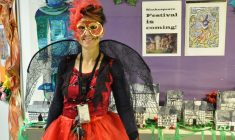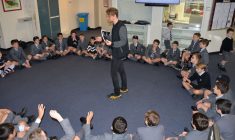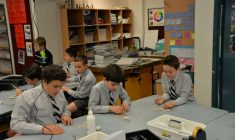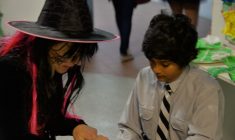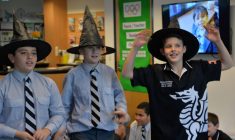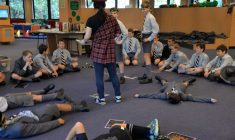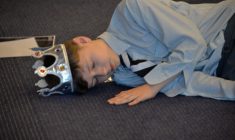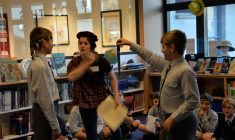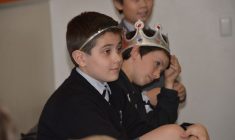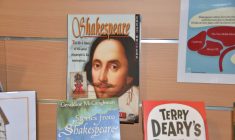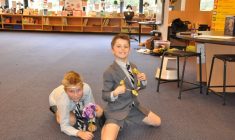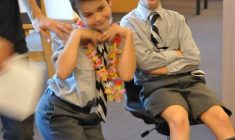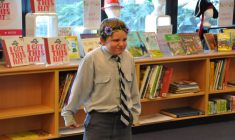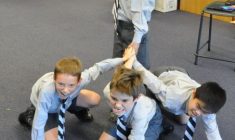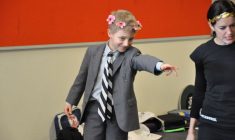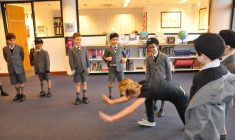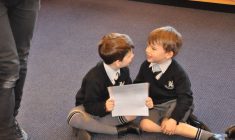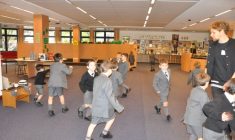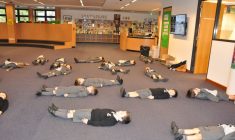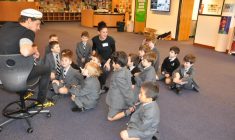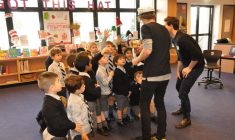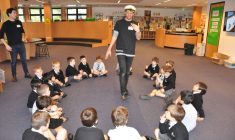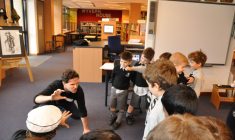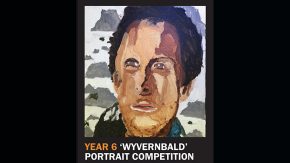The Wyvern Biennial Shakespeare Festival 2016
This year was the 400th anniversary of Shakespeare’s death. With that in mind, our biennial Shakespeare Festival’s timing was opportune. Considering the Shakespeare Festival coincided with Shakespeare Day, this particular 3 weeks offered the chance to immerse ourselves in all things Elizabethan. For most of us, not exposed to this period in history, this was going to be a challenge.
In saying that, let’s get started. Day one of our festival kicked off the starting gun, seeing Stage one boys off to the casual learning space to study Twelfth Night and The Tempest – in excellent hands with the Bell Shakespeare company’s actors. The children also used art as a medium to relate to those works building a Shakespearean village and experimenting with portraitures. Drama was also on the agenda, closely followed by some re-enactment work – which entailed snippets of those plays.
Concurrently, Stage 2 were doing more heavy acting work, the end result of which was a brief summary of A Midsummer Night’s Dream. Boys received roles and switched roles from the play with auto-queue, because goodness knows memorizing that text would’ve turned anyone into (to quote Shakespeare himself) a *mammering, onion-eyed canker-blossom*.
Stage 3 was generally divided into groups to study “the Bard’s play”, Macbeth- said to be a cursed play whose title should never be uttered in a theatre, lest disaster strike you or your fellow theatre-goers. Death, treason, going insane, witchcraft and losing your status in society. What a great way to end the term.
Year 5 did an end-of-week production – but here’s the rub… actually, I just wanted to build up the suspense there (something I learned from studying Shakespeare). The Year 5 performance was very good, especially as it was such a dark and serious play. Shout out to the three witches for their Oscar-winning cackling.
Year 6 started two weeks in advance with a broader range of activities (out of 21) for the students to choose from, including but not limited to fencing (no boys were harmed in the making of the videos), Elizabethan cookery, to-scale Globe Theatre model making, Elizabethan portraiture, biography writing and writing a letter addressed to Shakespeare (in Shakespearean prose). It even went to the extent of Shakespearean prose in assembly. Now, I can speaketh most wondrous soliloquies like a pro thespian.
Year 6 had the added bonus of an Elizabethan feast (without the bear baiting). Here’s the rub (for real this time): the more tasks you turned in, the higher the ranking you achieved (i.e you could turn up as nobility, the middle class or peasantry). There was a promise of being able to throw food at the peasants, however this didn’t eventuate (unfortunately, as a few of us for one were looking to administer poetic justice to some peasants). The spread of food was lavish. Roast chicken, pies and grapes but thankfully no sign of black pudding, haggis or stepony.
Many thanks to the Mrs Ratner, parents, and our teachers who made the feast possible. It was highly enjoyable and a fantastic, appropriate to end the term, the Shakespearean festival and the semester.
Wyvern’s Shakespeare Festival week provides opportunities aplenty for learning and is all round an excellent introduction to Shakespeare’s works, which for many of us, is the first exposure to historical writing.
By Luke Canter Year 6



